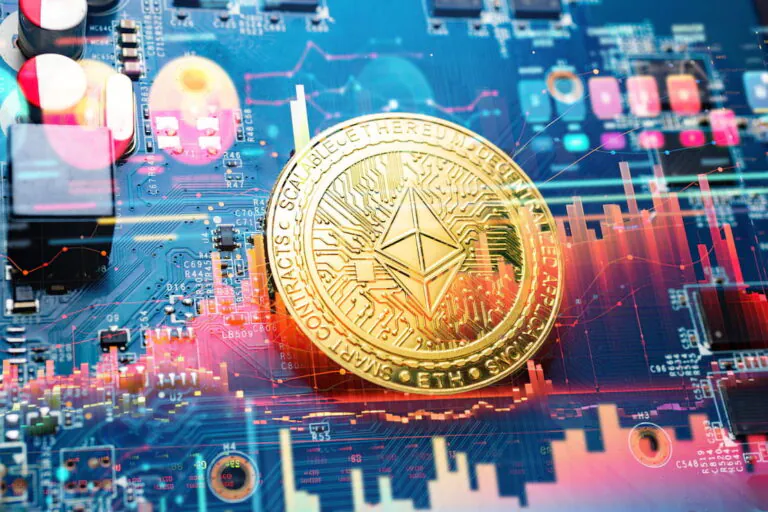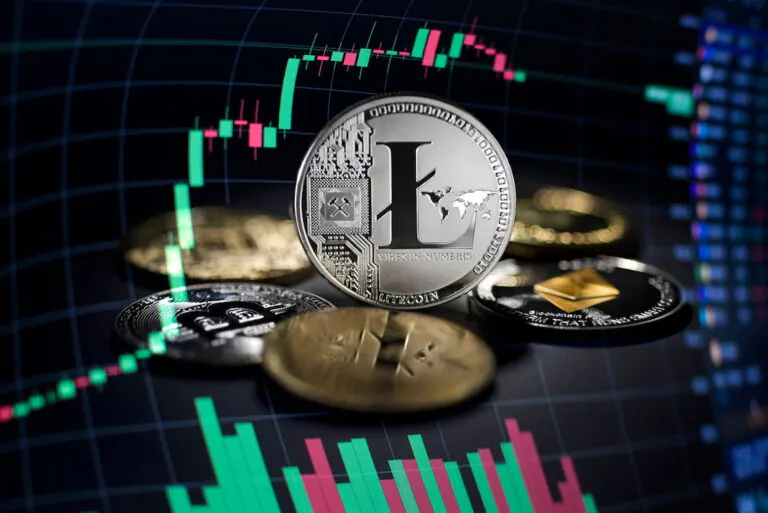It’s no secret that president Donald Trump is a big supporter of cryptocurrency and blockchain technologies. Initially a huge crypto sceptic, he then became one of many people dreaming of making the USA the crypto capital of the world.

What is the Metaverse and What Is Its Impact on the World of Cryptocurrencies?
What is the Metaverse?
What exactly is the metaverse? It represents the next stage in the internet's evolution, surpassing the traditional notion of an "information superhighway." To step into this immersive digital domain, you'll utilize virtual reality instead of the usual keyboard and screen interfaces. Virtual headsets, smart glasses, and motion tracking systems provide complete immersion within the metaverse, enabling interactions with people and objects while facilitating digital transactions.
The metaverse functions as a decentralized realm, devoid of centralized control. In this space, businesses and individuals coexist on an equal footing, as it lacks a central regulatory authority, allowing for substantial autonomy. Its foundation in blockchain technology ensures a secure environment, guarding against security threats and fraud through its decentralized structure and cryptographic methods.
The intersection of the metaverse and cryptocurrency underscores the capacity to execute financial transactions and agreements utilizing cryptocurrencies such as Bitcoin (BTC) and Ethereum (ETH) within the metaverse. This opens doors to distinctive financial prospects in the digital domain, all the while maintaining the core tenets of decentralization and security.
While much of the metaverse's potential remains unexplored and theoretical, gaming communities are diligently working to turn these concepts into reality on the internet. These initial steps reveal significant growth possibilities and creative development, offering users access to a variety of services and integrated products. Various corporations, including Facebook (now Meta), express active interest in metaverse development, but its success hinges on organic growth and evolution, with individual users being the key factor. In metaverse development, no single company, government, or organization holds more power than individual users. Achieving metaverse success requires decentralization and a user-centric approach, with users playing a pivotal role in its use, support, and advancement.
The Potential of the Metaverse
In the early conceptualizations of the metaverse, there was a strong desire for escapism and a detachment from reality. However, the metaverse as we know it today presents a significantly different landscape. Its primary focus is on enhancing social interaction, often disguising itself as gaming platforms. The metaverse introduces new dimensions of experience within a complex virtual world and nurtures profound forms of social connection in the modern digital sphere.
This reflects our ability to engage in a wide range of activities and maintain connections with others in a gaming context. It's crucial to emphasize that metaverse users simultaneously take on the dual roles of players and developers. The gaming environment is underpinned by a virtual economy deeply intertwined with the real world, thus creating innovative opportunities for earning, including virtual assets, digital collectibles, non-fungible tokens (NFTs), and cryptocurrencies.
Although much of the current metaverse is closely intertwined with the gaming realm, it holds a multitude of other potentials in the realms of artificial intelligence, inclusivity, and practicality. Inside this virtual domain, one can uncover avenues of entertainment, art, culture, shopping, and economic opportunities. Users can directly engage with celebrities and public figures, take part in virtual concerts and festivals, and the virtual world is always poised to offer innovative means of interaction and entertainment. Individuals will have the chance to interact with well-known brands in a more immersive fashion, and these brands themselves will lead the charge by introducing fresh styles, interaction methods, and gaming opportunities, staying at the forefront of emerging trends.
In the present moment, a significant chunk of the NFT-powered metaverse is deeply intertwined with gaming components, with acquisitions playing a secondary role. Users obtain digital properties, fashion items, artworks, and design services, not only embellishing their virtual selves but also reshaping the digital terrain. All of these transformations come to life through the magic of NFTs and the sway of cryptocurrencies within the metaverse.
What Is Needed for Developing the Metaverse?
In the midst of Facebook's highly publicized rebranding, it's imperative to acknowledge that they are not the sole entity captivated by the metaverse's potential. Major players in the tech industry, including Microsoft, Unity, Amazon, Epic Games, and other industry behemoths, actively engage in collaborations with developers, designers, and entrepreneurs to push the boundaries of this domain. Take, for instance, chip manufacturer Nvidia, which painstakingly crafts Omniverse, an innovative platform for developing augmented reality simulations, thereby contributing to the ongoing evolution of the metaverse.
The NFT-driven metaverse presents a myriad of distinctive features, such as:
- Real-time synchronization of events for all participants.
- A seamlessly functioning system.
- Events spanning both the physical and virtual realms.
- A well-established cryptocurrency ecosystem.
Both individuals and businesses can participate in this ecosystem using cryptocurrencies. Within the metaverse, you have the capability to create, earn, invest, purchase, and trade virtual real estate with cryptocurrency, which can subsequently be converted into real-world fiat currency.
The metaverse, often lauded as the "next-generation internet," transcends the realm of simple augmented reality in the digital domain. Its construction relies on a plethora of technologies, encompassing not only the internet but also decentralized ledgers, smart contracts, 3D innovations, and an array of other advancements.
Video Games in the Metaverse
The crossroads of video games and the metaverse serve as a unique gateway to immersive three-dimensional virtual realms, but their shared attributes reveal even more intriguing dimensions. Modern video games have transcended mere entertainment, evolving into multifaceted platforms that impact various aspects of our daily lives. A prime example of this transformation is Roblox, which has turned virtual space into a hub for diverse events, including concerts and virtual gatherings.
In contemporary video games, users are no longer limited to passive engagement in the gaming experience; instead, they actively participate across various dimensions of their virtual "cyberscapes." Take Fortnite, for instance, a multiplayer game that hosted a virtual concert featuring the artist Travis Scott, drawing an astonishing 12.3 million players.
This fusion of video games with the metaverse not only redefines our perception of entertainment but also demonstrates how they have evolved into realms for interaction, creativity, and communication within the digital realm. It represents a new dimension in which gaming worlds seamlessly merge with reality, providing users with the ability not only to play but to collaborate, create, and even attend events like concerts in virtual environments. It signifies not just the next phase in the progression of the gaming industry, but a way of life where the boundaries between entertainment and reality blur, and the metaverse offers limitless opportunities for virtual interaction and innovation.
Cryptocurrency Projects in the Metaverse
Cryptocurrency and blockchain ventures are at the forefront of the metaverse, ushering in a multitude of distinctive prospects and diverse applications. Within the metaverse domain, various fascinating categories of cryptocurrency projects are taking shape:
- NFT Market. Metaverses now incorporate virtual assets and non-fungible tokens (NFTs) as fundamental components. Projects like CryptoKitties and Decentraland are trailblazing the way for generating, selling, and trading unique digital assets, including virtual real estate and collectibles.
- Decentralized Applications (DApps). Cryptocurrency projects are actively crafting DApps that ensure security and transparency within metaverses. These applications operate on the blockchain and contribute to different aspects of the virtual world.
- Metaverse Currencies. Many metaverses introduce their own cryptocurrencies, allowing users to engage in transactions and economic activities within virtual realms. Examples include MANA (Decentraland) and SAND (The Sandbox).
- Content Creation. Platforms like Somnium Space offer tools for crafting and vending virtual objects, artworks, and land parcels, which subsequently become exclusive NFTs.
- Education and Training. Metaverses are transforming into platforms for education and knowledge exchange. Cryptocurrency projects actively create educational resources and DApps to facilitate learning within virtual worlds.
- Financial Instruments and Banking. Some projects provide tools for financial operations within metaverses, including lending, deposits, and cryptocurrency trading.
- Augmented and Virtual Reality. Metaverses seamlessly integrate VR and AR to elevate the user experience and enhance virtual environments.
- Social Platforms and Communication. Emerging social networks and communication platforms in virtual worlds create innovative settings for interaction and communication.
These cryptocurrency projects make substantial contributions to the diversity and progression of metaverses, ushering in fresh opportunities for users and establishing virtual ecosystems where cryptocurrencies and blockchain technologies play pivotal roles.
Exploring Tokens with Unique Potential in the Metaverse
When delving into the realm of promising tokens for metaverses, we uncover a thrilling universe of digital assets that wield significant influence in shaping the destiny of virtual worlds. In this context, let's delve into a selection of the most captivating tokens that have the potential to spark innovation and transformation within metaverses:
- MANA (Decentraland). MANA serves as a vital key to unlock the realm of digital ownership within Decentraland, one of the most popular metaverses. In a landscape where virtual real estate and digital resources hold substantial value, MANA provides the gateway to acquiring, trading, and managing these valuable assets.
- SAND (The Sandbox). SAND is the currency used to create and enrich The Sandbox metaverse. With SAND, users can acquire virtual land parcels and assets, breathing life into their creative ideas within this dynamic digital world.
- ENJ (Enjin). Tailored for the gaming sphere, ENJ opens up exciting possibilities for the creation and management of NFTs and digital items within the gaming environment.
- AXS (Axie Infinity). As the token powering the Axie Infinity game, it immerses users in the world of digital battles and adventures, offering opportunities to earn and spend within the game's metaverse.
- WAXP (WAX). Affiliated with the World Asset eXchange (WAX), this token holds significant value for trading virtual goods and NFTs on platforms operating within the WAX ecosystem.
- RARI (Rarible). This token supports the Rarible platform, where creative minds can produce, promote, and exchange NFTs.
- VERA (Vera VR). As the virtual asset of the Vera VR metaverse, VERA streamlines transactions, virtual real estate acquisitions, and creative content development.
- DEC (Decentral Games). An indispensable element within the Decentral Games virtual casinos, DEC ensures economic stability and active participation in thrilling gaming experiences.
It's worth noting that the cryptocurrency market is highly dynamic and subject to fluctuations. Therefore, it is imperative to conduct comprehensive research and assess risks thoroughly before considering investments in these tokens or any other cryptocurrencies.
Earning Opportunities in the World of Metaverse Gaming
Metaverse games represent a new frontier in virtual entertainment, leveraging blockchain technology to provide players with unprecedented chances to make money. These digital realms are constructed upon the foundation of digital assets, including NFTs (non-fungible tokens), cryptocurrencies, and smart contracts. Within metaverse games, players can engage in activities like asset creation, trading, and ownership, participate in complex economic ecosystems, and even convert their in-game efforts into real-world earnings.
Below, we delve into detailed appraisals of selected metaverse games and platforms that empower players to seize earning opportunities:
- Decentraland. This metaverse enables players to invest in virtual real estate on the blockchain and actively engage in content creation, event organization, and social interactions with fellow participants. Here, you can generate income by selling or renting virtual property and crafting NFT content for subsequent sale.
- CryptoKitties. A unique collectible game that has players collecting and breeding distinctive digital kittens, each representing an NFT. Some exceptionally rare CryptoKitties can fetch significant sums at auctions, presenting players with profitable opportunities.
- Axie Infinity. In this game, participants collect and train fantastical creatures known as Axies, engaging in strategic battles. Victories translate to earning SLP, the in-game currency, which can be exchanged for cryptocurrency.
- The Sandbox. This virtual sandbox empowers participants to construct their own digital worlds, allowing them to sell or lease virtual land and earn revenue through the sale of NFT assets, such as objects and characters.
- Splinterlands. In this card game, players collect and engage in battles using digital crypto cards. Each win results in cryptocurrency rewards (DEC), and players can also trade NFT cards for added earning potential.
- Decentralized Finance (DeFi) Games. Certain DeFi games, such as Aavegotchi, offer participants the opportunity to participate in cryptocurrency lending, staking, and various other decentralized financial operations, which can yield income through interest and rewards.
- MyCryptoHeroes. In this game, players collect and battle with historical characters represented as NFTs. Participants can capitalize on earning opportunities by participating in trading and engaging in in-game events.
These metaverse games offer diverse avenues for players to earn income, and their rising popularity continues to make them a captivating and innovative segment within the gaming industry.
Can Cryptocurrencies Be Considered the Future of the Metaverse?
One could make the case that cryptocurrencies represent a fundamental cornerstone in shaping the future of the metaverse. Nonetheless, their integration and impact on these virtual realms hinge on a multitude of factors and the ever-evolving trends in the realms of technology and finance.
- Independence and Ownership. Cryptocurrencies, with their decentralized control and underlying blockchain technology, provide robust mechanisms for asserting ownership over digital assets. This quality is especially valuable within the metaverse, where users seek autonomy over their virtual properties, sidestepping the need for intermediaries.
- Metaverse Economics. Cryptocurrencies can function as a universal currency within the metaverse, equipping users with the means to engage in transactions, procure virtual goods, and access services. This, in turn, contributes to the maturation of the metaverse's internal economic ecosystem.
- Smart Contracts. The smart contract technology rooted in blockchain facilitates the automation and governance of interactions among participants in the metaverse. It allows for the establishment of conditions and rules that execute automatically when specific events occur.
- Funding and Investments. Cryptocurrencies and initial coin offerings (ICOs) have long served as effective vehicles for financing blockchain and metaverse ventures. These mechanisms provide distinctive opportunities for both investors and developers.
However, it's crucial to acknowledge that cryptocurrencies come with their own set of risks, including price volatility, shifting regulations, and security concerns. These factors can significantly shape their role within the metaverse.
Hence, while cryptocurrencies and blockchain undeniably play a pivotal role in shaping the future of the metaverse, they are not the sole determinants, and their influence will be contingent on the development of various technological, economic, and sociocultural facets.
Start your crypto exchange with Coin24

Exchange BTC, ETH, USDT and more — cash or card

Secure and fast crypto exchange since 2018



